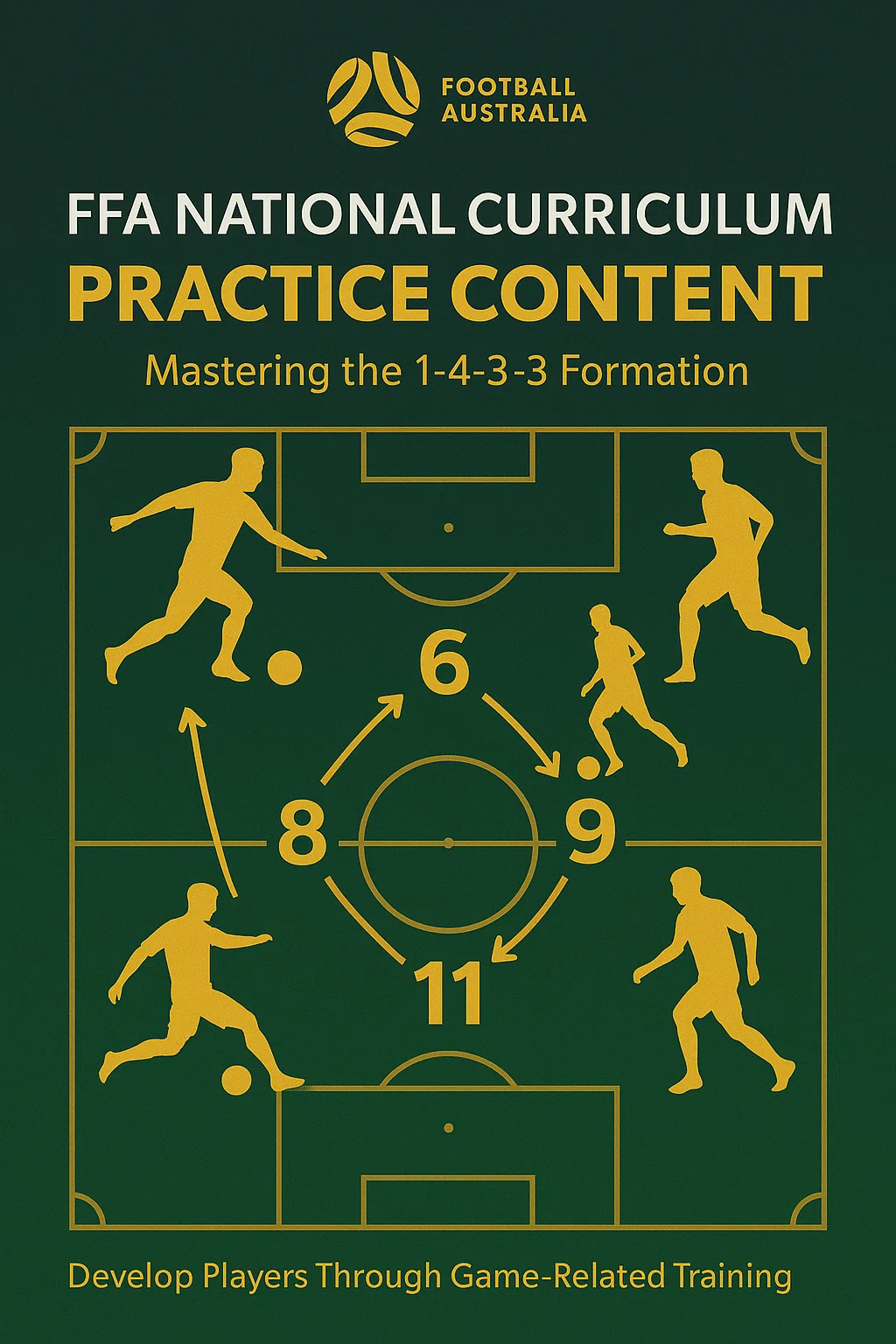
FFA National Curriculum: Practice Content – The Complete Guide to Australia’s Football Development System
Introduction: Revolutionizing Australian Football Development
The FFA National Curriculum: Practice Content represents Football Australia’s visionary blueprint for developing world-class players through systematic, game-centered training. This comprehensive 3,000-word analysis will explore how the curriculum’s focus on the 1-4-3-3 formation and game-related training methodologies is transforming player development across Australia.
For coaches seeking to implement these principles, our Australian football development hub offers supplementary resources and training materials.
The Philosophy Behind the Curriculum
Game-Centered Development Approach
The FFA curriculum emphasizes:
- Whole-Part-Whole Methodology: Teaching through game situations
- Position-Specific Learning: Tailored development pathways
- Tactical Periodization: Training game components in context
Understand the framework at Football Australia’s official site.
Mastering the 1-4-3-3 Formation
Why 1-4-3-3? Australia’s Formation of Choice
The curriculum advocates this system because it:
- Develops versatile players comfortable in multiple roles
- Creates natural triangles for possession play
- Facilitates pressing with front three structure
Key Positional Responsibilities:
- Full-backs: Overlapping and underlapping options
- Number 6: Build-up play and defensive screening
- Wingers: Creating width and 1v1 opportunities
For formation-specific drills, visit our tactical training center.
Age-Specific Implementation
Foundation Phase (U6-U12)
Focuses on:
- Basic shape understanding through simplified games
- Technical fundamentals in game contexts
- Enjoyment and creativity as primary objectives
See age-appropriate activities at The FA’s Youth Development.
Youth Development Phase (U13-U17)
Introduces:
- Advanced positional roles within 1-4-3-3
- Tactical decision-making under pressure
- Physical literacy development
Professional Phase (U18+)
Focuses on:
- Game model implementation
- Position-specific mastery
- High-performance conditioning
Game-Related Training Methodology
The Four Corner Model
The curriculum addresses:
- Technical/Tactical: Skill execution in game scenarios
- Physical: Football-specific conditioning
- Psychological: Decision-making and resilience
- Social: Communication and teamwork
For holistic development resources, visit our four corners training module.
Training Session Design
Sample Practice Structure
- Game Observation (15 mins): Identify focus areas
- Guided Discovery (20 mins): Coach-led problem solving
- Conditioned Game (25 mins): Applying learned concepts
- Reflection (10 mins): Player self-assessment
Access complete session plans for all age groups.
Player Development Metrics
Assessment Framework
The curriculum provides tools to measure:
- Technical proficiency in game situations
- Tactical understanding through decision audits
- Physical benchmarks by age group
- Psychological resilience indicators
Compare with Premier League’s Academy Standards.
Technology Integration
Modern Training Tools
The curriculum incorporates:
- Video analysis for tactical education
- GPS tracking for load management
- Performance apps for player feedback
Case Studies: Curriculum Success Stories
Australian Talent Pathway Results
- Matildas’ World Cup performances
- A-League youth products in Europe
- Junior national team achievements
Read success stories at FFA’s Talent Reports.
Conclusion: Implementing the Australian Way
The FFA National Curriculum: Practice Content provides:
- A clear development pathway from grassroots to professional
- Game-realistic training methodologies
- Measurable benchmarks for player progression
Take your coaching to the next level:
- Explore our Australian curriculum resources
- Study UEFA’s youth development guides
- Join FFA’s coaching community
“Great systems develop great players” – implement these principles to nurture the next generation of Australian football talent. For ongoing support, visit our coaching development portal regularly.
